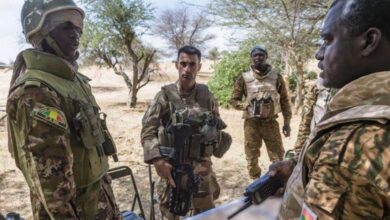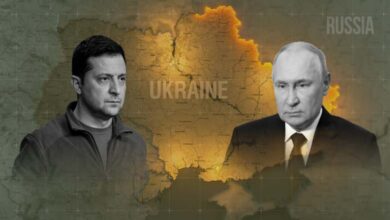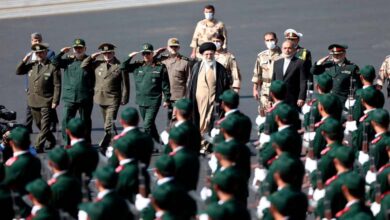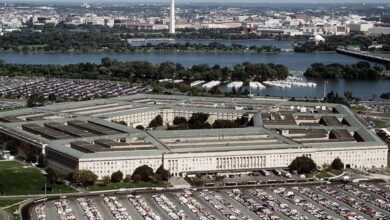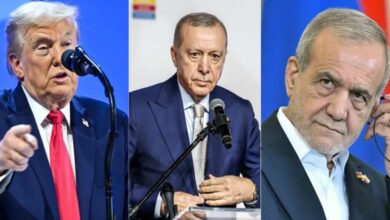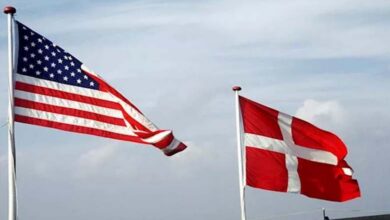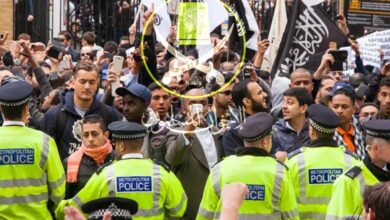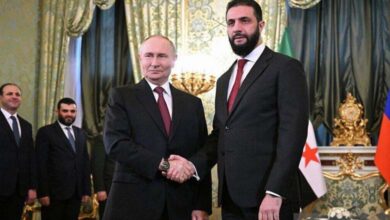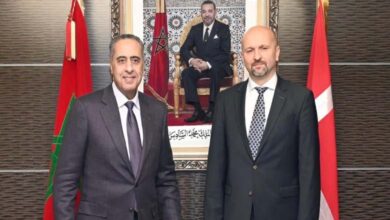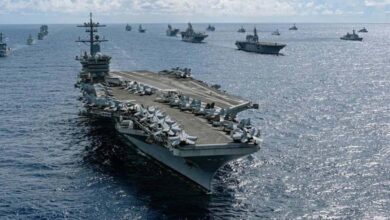The Brotherhood… How have they wrought ruin and chaos wherever they go?
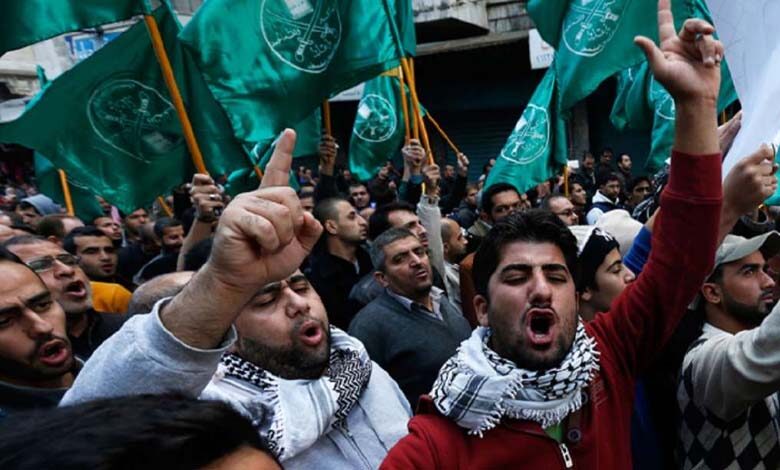
Destruction by the Muslim Brotherhood in the Mediterranean Sea, from Vienna, the capital of Austria, to the Libyan capital Tripoli, a report by New Europe revealed, confirming that wherever the Brotherhood goes, there is desolation and destruction
Most recently, Austrian Chancellor Sebastian Kurtz has taken a number of legislative initiatives, targeting extremist Islamist groups and movements within the country, including banning the use of symbols associated with the Muslim Brotherhood, as well as other terrorist organizations such as ISIS, al-Qaeda, Hamas, and Hezbollah.
The New Europe report noted that the move comes after months of rigorous investigation by the Muslim Brotherhood and other extremist groups in the wake of the deadly terrorist attack in November in the heart of Vienna, carried out by a loyalist to the terrorist organization ISIS.
The report also pointed out that late last year, Austrian authorities carried out a series of raids targeting individuals and organizations linked to the terrorist Muslim Brotherhood and Hamas. Austrian prosecutors described the group as a radical Islamist organization, globally active and strongly anti-Semitic, attempting to project the establishment of an ISIS state based on an extremist conception of Islamic law in all countries of the world. With growing concerns about its role in radicalizing individuals from Muslim minorities across Europe, other EU governments have begun to follow Austria’s example, it said.
The report warned that while European governments tend to consider the Muslim Brotherhood a terrorist group that poses a major threat to social cohesion and secular values, the role of that terrorist group in the Libyan political crisis helps to clarify its anti-democratic tendencies. The report described the position of the Muslim Brotherhood in Europe as being on the ice.
The report also noted that as Vienna had kept the Brotherhood in its sights for years, political leaders in Paris began to adopt a similar approach after years of high-profile terrorist attacks perpetrated by radical individuals within France and Europe, including the beheading of history teacher Samuel Paty and a knife attack on a Catholic church outside Paris in the Nice area, where both incidents took place last year.
The European website said: French President Emmanuel Macron issued a Charter of Principles drafted by senior representatives of the French Muslim community, which set out guidelines for the harmonization of Islamic religious practices and French secular republican values, noting that a group of radical Islamist organizations in France pushed against the content of that charter, and opposed it, led by Turkish diaspora organizations Millî Görüş or the Turkish Islamic party group and the Coordination Committee for Turkish Muslims in France – both of which are closely linked to the government of Recep Tayyip Erdoğan and the ruling Muslim Brotherhood party in Turkey.
Here, the report described the Turkish Justice and Development Party as a direct ideological descendant of a twentieth-century network of Islamist movements, based largely on its reference to the Brotherhood. Under Erdoğan, Turkey has served as a key sponsor of the terrorist organization in Libya, Europe and other parts of the Middle East, adding that President Macron for his part considered the Muslim Brotherhood, along with Wahhabism and Salafism, to be a key driver of extremism in French society, and throughout Europe.
European leaders have repeatedly found themselves at odds with the Turkish government over democratic norms and Western values, with the Brotherhood and other ideologically aligned Islamist extremist groups being Turkey’s means of influencing Muslim communities within the EU and pressuring Erdoğan’s European opponents, he said.
“On the other side of the Mediterranean in Libya, the Brotherhood is similarly giving Ankara a boost to maintain its influence in the country and influence its political future, including the continued deployment of Turkish-backed fighters and mercenaries in Libya despite demands from both sides for the transitional government and the international community that these fighters and mercenaries must withdraw, according to New Europe.”
The report also said that the collapse of the UN-sponsored Libyan Political Dialog Forum prior to the upcoming Libyan elections in December has led to a re-asking of the interim government in the country, led by businessman-turned-politician Abdel Hamid Dbeibah, and whether it will eventually fulfill its international obligations to step aside by the end of this year. It pointed to the EU’s already published threats of economic sanctions to stop the practices of rogue actors inside Libya from interfering in the scheduled elections, but the political dynamics of the current impasse once again draw attention to the impact of the presence of the terrorist Brotherhood in the North African country.
The report also pointed to the influence the Brotherhood wielded over the Tripoli-based Wifaq government led by Fayez al-Sarraj, stressing that the transition to a unified transitional government was a setback for the Brotherhood, despite the fact that Dbeibah was affiliated with the group in the years following Libya’s 2011 revolution. Libya’s new prime minister has shied away from the GNA’s allies to win over eastern rivals and attract them to participate in Tripoli’s government, while many Libyans see the Brotherhood’s own failures as costing it legitimacy in Libya.
He added: If December’s elections are allowed to proceed as planned, experts such as fellow Atlantic Council member Karim Mezran predict that the Brotherhood’s Justice and Construction Party and its allies are unlikely to win more than a fifth of the seats in the new parliament, giving the group enough reason to postpone or delay the elections, regardless of the cost of the Libyan peace process.
Tunisian commentator Habib Lasoud wrote in Arab Weekly following the Geneva talks that 45 out of 75 seats had been allocated to the Brotherhood and its allies, arguing that Libyans themselves expected the debates to collapse because of strong incentives for participants to torpedo the electoral process.
The report noted that ironically, if the group and its allies succeed in delaying the Libyan elections in an effort to preserve what remains of their political position, the ultimate beneficiary will be Dbeibah, who will be able to remain in office beyond the expiration date of his government in December.
“With the Libyan Political Dialog Forum now off track, it remains to be seen whether the EU will follow through on its threat of sanctions against politicians responsible for the collapse of the talks, the New Europe report concluded, noting that European governments for their part have already begun to work against the Brotherhood within their borders – a trend that ultimately shapes policy at the EU level as well.”


